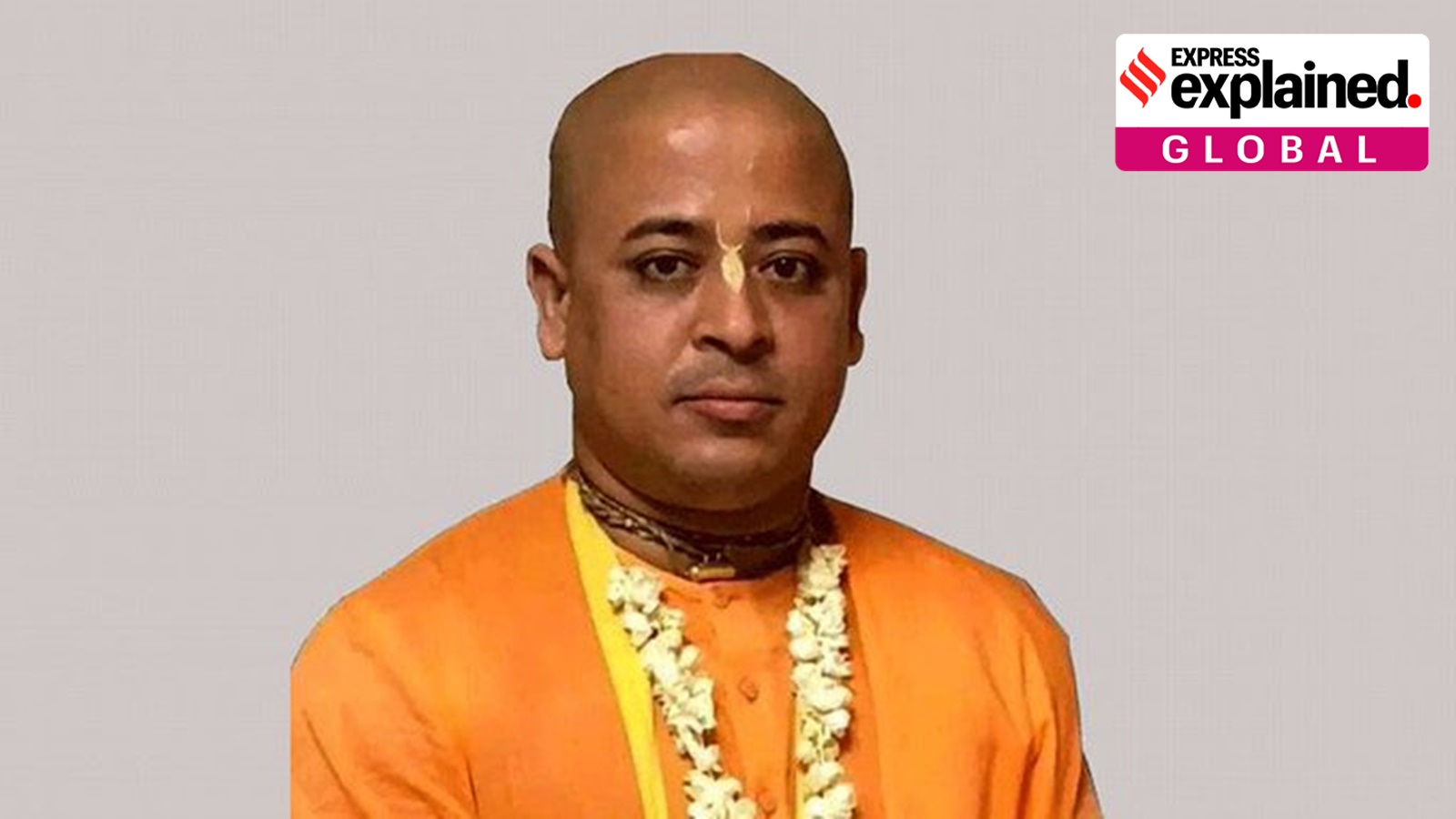 |
|
The arrest of Chinmoy Krishna Das Prabhu, an ISKCON priest and spokesperson for the Bangladesh Sammilit Sanatan Jagran Jote, has ignited a firestorm of concern regarding the treatment of religious minorities in Bangladesh. India has voiced its “deep concern” over the arrest and denial of bail, highlighting a pattern of attacks against Hindus and other minority groups. Prabhu's arrest, which occurred at Dhaka airport while en route to Chattogram, underscores the precarious situation faced by religious minorities, who are increasingly vocal in their demands for justice and protection. The Sammilit Sanatan Jagran Jote has presented an eight-point list of demands aimed at addressing these concerns, encompassing legal reforms, institutional changes, and improved protection of religious sites and cultural heritage.
Central to the demands is the establishment of a Special Tribunal to expedite trials in cases of minority persecution. This reflects a deep-seated frustration with the existing judicial system's perceived inability or unwillingness to effectively prosecute perpetrators of violence against minorities. The proposed tribunal aims to ensure swifter justice, including compensation and rehabilitation for victims. This measure is seen as crucial to deterring future attacks and offering a sense of redress to those who have suffered losses and trauma. The slow pace of justice, coupled with a lack of accountability for perpetrators, has significantly eroded the confidence of minority communities in the legal processes.
The call for a Minority Protection Law reflects the perceived inadequacy of existing legal frameworks in safeguarding the rights and security of minorities. While Bangladesh's constitution ostensibly protects religious freedom, the reality on the ground paints a different picture. Reports from human rights organizations consistently document violence, discrimination, and injustice faced by minority groups. A dedicated law is seen as a necessary step to provide specific legal protections and address the systemic issues contributing to their vulnerability. The absence of effective enforcement of existing laws further underscores the need for a comprehensive and enforceable legal framework specifically designed to protect minorities.
The proposal to create a Ministry for Minority Affairs underscores the need for a dedicated governmental body to address the unique challenges and concerns faced by diverse minority communities. While a Ministry of Religious Affairs exists, it does not adequately address the specific, non-religious needs of these groups. The establishment of a dedicated ministry would provide a central point of contact for addressing issues relating to education, economic empowerment, cultural preservation, and overall well-being of minorities. This would signal a significant commitment from the government to actively engage with and support the needs of its diverse population.
Other key demands include upgrading the Hindu Welfare Trust to a Hindu Foundation (with similar upgrades for other minority groups), reflecting a desire for greater autonomy and control over institutions that serve their communities. The current system, where government control prevails, is seen as insufficiently responsive to the needs of minority groups. The demand for greater control is aimed at ensuring the effective use of resources and greater community ownership over decision-making. The demands also extend to the recovery and protection of Debottar (temple) properties, addressing the issue of land grabbing and the weaponization of laws against minority communities.
The demand for prayer rooms in educational institutions recognizes the need for inclusive spaces for religious practice. The establishment of multi-faith prayer rooms in some institutions offers a positive example, but its lack of widespread implementation highlights the need for systemic change. The request for modernization of the Sanskrit and Pali Education Boards seeks to enhance educational resources for these communities and preserve their cultural heritage. Finally, the demand for a five-day public holiday for Durga Puja highlights the cultural significance of the festival for the Hindu community and seeks to ensure respectful recognition of their religious practices.
The situation in Bangladesh is complex and deeply concerning. The eight-point list of demands represents a comprehensive effort to address systemic issues affecting religious minorities. The arrest of Krishna Das Prabhu is not an isolated incident but rather symptomatic of a larger problem of violence, discrimination, and impunity. The international community's attention is crucial in pressuring Bangladesh to address these issues, implement meaningful reforms, and protect the rights of all its citizens, regardless of their religious affiliation. The outcome of these demands will be a significant indicator of the Bangladeshi government's commitment to religious pluralism and the rule of law.
